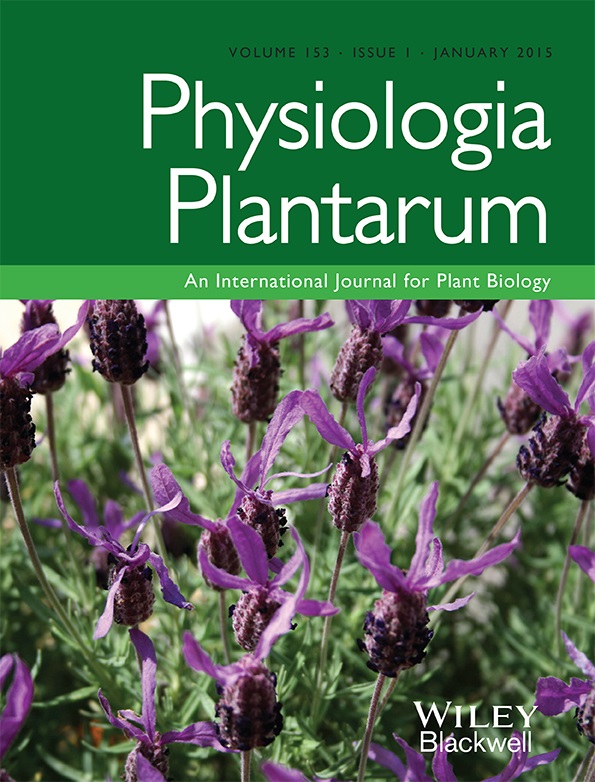Ver ítem
- xmlui.general.dspace_homeCentros Regionales y EEAsCentro Regional Mendoza - San JuanEEA La ConsultaArtículos científicosxmlui.ArtifactBrowser.ItemViewer.trail
- Inicio
- Centros Regionales y EEAs
- Centro Regional Mendoza - San Juan
- EEA La Consulta
- Artículos científicos
- Ver ítem
Azospirillum brasilense ameliorates the response of Arabidopsis thaliana to drought mainly via enhancement of ABA levels
Resumen
Production of phytohormones is one of the main mechanisms to explain the beneficial effects of plant growth‐promoting rhizobacteria (PGPR) such as Azospirillum sp. The PGPRs induce plant growth and development, and reduce stress susceptibility. However, little is known regarding the stress‐related phytohormone abscisic acid (ABA) produced by bacteria. We investigated the effects of Azospirillum brasilense Sp 245 strain on Arabidopsis thaliana Col‐0 and
[ver mas...]
Production of phytohormones is one of the main mechanisms to explain the beneficial effects of plant growth‐promoting rhizobacteria (PGPR) such as Azospirillum sp. The PGPRs induce plant growth and development, and reduce stress susceptibility. However, little is known regarding the stress‐related phytohormone abscisic acid (ABA) produced by bacteria. We investigated the effects of Azospirillum brasilense Sp 245 strain on Arabidopsis thaliana Col‐0 and aba2‐1 mutant plants, evaluating the morphophysiological and biochemical responses when watered and in drought. We used an in vitro‐grown system to study changes in the root volume and architecture after inoculation with Azospirillum in Arabidopsis wild‐type Col‐0 and on the mutant aba2‐1, during early growth. To examine Arabidopsis development and reproductive success as affected by the bacteria, ABA and drought, a pot experiment using Arabidopsis Col‐0 plants was also carried out. Azospirillum brasilense augmented plant biomass, altered root architecture by increasing lateral roots number, stimulated photosynthetic and photoprotective pigments and retarded water loss in correlation with incremented ABA levels. As well, inoculation improved plants seed yield, plants survival, proline levels and relative leaf water content; it also decreased stomatal conductance, malondialdehyde and relative soil water content in plants submitted to drought. Arabidopsis inoculation with A. brasilense improved plants performance, especially in drought.
[Cerrar]

Autor
Cohen, Ana Carmen;
Bottini, Ambrosio Rubén;
Pontin, Mariela Ana;
Berli, Federico Javier;
Moreno, Daniela Maria del Valle;
Boccalandro, Hernan Esteban;
Travaglia, Claudia Noemi;
Piccoli, Patricia Noemí;
Fuente
Physiologia Plantarum 153 (1) : 79-90 (January 2015)
Fecha
2015-01
ISSN
0031-9317
1399-3054
1399-3054
Formato
pdf
Tipo de documento
artículo
Palabras Claves
Derechos de acceso
Restringido
 Excepto donde se diga explicitamente, este item se publica bajo la siguiente descripción: Creative Commons Attribution-NonCommercial-ShareAlike 2.5 Unported (CC BY-NC-SA 2.5)
Excepto donde se diga explicitamente, este item se publica bajo la siguiente descripción: Creative Commons Attribution-NonCommercial-ShareAlike 2.5 Unported (CC BY-NC-SA 2.5)

